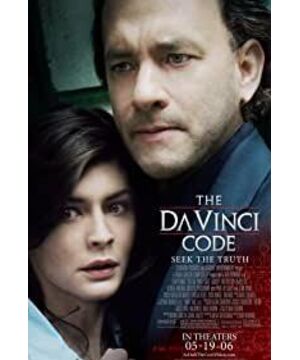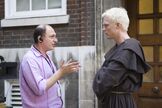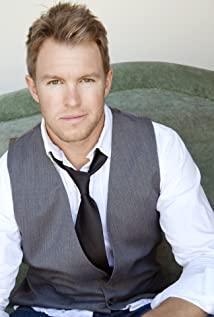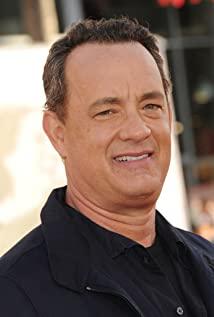Before watching the film, I have seen a lot of negative news about this film in the media. The commentary seems to be not very good. However, as one of the readers who have read the original, I am determined to enter the movie theater. After coming out of the theater more than two hours later, I think I am basically satisfied. Although the film did not bring too many surprises, the film directed by Long Howard still restores the original appearance of the novel. As for the disappointment of many viewers, I think more of it comes from the gap between reality and psychologically high expectations. This gap is mainly aimed at viewers who have read the original. The audience who has read the original work appreciates the film, which is actually a revisiting of the story of the novel, so it is unlikely that this film loyal to the original will bring too many surprises. The other part of the audience who has not read the original work may be more likely to be disappointed in the film. After all, this religious-themed film makes the audience feel jerky in understanding.
Movies and novels are two different forms of art. A successful novel may not necessarily be adapted into a successful film. I remember that Tarkovsky once believed that films should be created independently, which is like the author's film advocated by the French New Wave. . Some novels are suitable for adaptation into movies, and some novels are not suitable for adaptation into movies, and "The Da Vinci Code" actually belongs to the latter. Although the story of the novel is well developed and intertwined, this is not the real attraction of this novel. If you use this as a selling point, it is as boring as defining the film "The Da Vinci Code" as a thriller. The reason why the novel is successful is that it touched on the most sensitive key points of the Catholic Church. Regarding the identity of Jesus, it has greatly subverted the Catholic doctrine for thousands of years. How can such a bold idea not cause a sensation and sell well? And the reasoning about this shocking view comes from the extensive dialogue between Professor Robert Langdon and Sophie on the one hand, and the analysis of Sir Teabing on the other, and these are rich in knowledge of history, religion, art appreciation, and art history. It’s actually a bit difficult to express the dialogue through the film.
Due to the limited length of the film, the film can only reproduce historical doubts through flashbacks. Similarly, when dealing with the characters, it can only be hastily explained, and the background cannot be explained thoroughly. After all, the huge amount of information in the original book cannot be explained clearly in just over two hours, and it can be slowly digested and absorbed when reading a novel, so it is inevitable for those who have not read the original to appreciate such a movie in understanding. A little tired. Although the novel "The Da Vinci Code" is not too suitable to be turned into a movie, it does not mean that the visualized images are not helpful for the understanding of certain decryptions. Although the text can explain and analyze in detail, sometimes it is not as good as the screen. It is straightforward, especially when Sir Teabing demonstrated the existence of the Holy Grail in Da Vinci’s famous painting "The Last Supper", expressing it very clearly with partial highlighting and displacement. In this regard, the film’s advantage is obvious. of. The differences in the two forms of expression, text and picture, also determine their respective limitations, so not all literary works are suitable for transformation into movies.
Films that successfully adapt literary works are often re-creations with the director’s personal consciousness. The director adds new perspectives and consciousness when shooting the film, making the film a brand-new work of art, not just a reprint of the original. And Long Howard did not re-create "The Da Vinci Code", but followed the original point of view as much as possible. Perhaps he thinks that such a sensitive film no longer needs to be changed. However, from the perspective of entertainment, Long Howard speeded up the pace of the film and made the hunting scene a little tense. Fortunately, he did not turn this film into a gunfight action movie. Some people think that "The Da Vinci Code" is similar to "The Wealth of the Country", but compared to the position of a pure entertainment film of "The Wealth of the Country", the film "The Da Vinci Code" is still relatively focused on historical deciphering and reasoning. In fact, the sensitive religious subject matter of this film is indeed a good guarantee for the box office, and Long Howard does not need to take the risk of adapting it.
Controversial religious themes often stimulate the box office of movies, and the fictional view of Jesus atheism in the film "The Da Vinci Code" is bound to be like the 1988 director Martin Scorsese launched "The Last of Christ" "Temptation", the film caused great controversy after its release because of boldly touching on the Catholic doctrine. The low-cost film "The Passion of the Christ" directed by Mel Gibson, released in 2004, became a dark horse at the box office, with a total of tens of millions in the box office. Regardless of the dispute, the level of attention is unquestionable. Coupled with the opposition of the Holy See, the demonstrations of some religious figures and other news, it played an advocating effect for the film "The Da Vinci Code", so the film's box office results should not be bad.
As viewers in the East appreciate such a film, they actually have a curious mentality. The influence of Catholicism in China is not deeply ingrained in the West. It also affects the Chinese audience’s understanding of Catholic history, and this increased interest in curiosity must be rooted in the foundation of Western history and culture. Otherwise, enjoy this film when you enjoy it. Not that happiness. If you give a simple example, "The Da Vinci Code" is like our favorite Jin Yong's martial arts work. The story is bizarre and moving, and it blends history in a truly fascinating way. The reason why we like Jin Yong's martial arts works is because we understand Chinese history, and "The Da Vinci Code" also requires the audience to understand the history of Catholicism and the West, otherwise they will not be able to understand some of the allusions in the film's dialogue.
And for such a star lineup that combines Tom Hanks, Audrey Tatu, Renault, Ian McLean, and Paul Bettany, it seems that it should add a lot to the film, but it is a pity that this cannot be done. arrive. Professor Langdon, the protagonist played by Tom Hanks, does not seem to be attractive. Since this role in the original book is not very clear, he exists more as a deciphered presenter, with little personality. , It can only make the Oscar double-material actor nowhere to play. Audrey Tatu seems to be in the same situation as Tom Hanks, and the French actress who became popular with the quirky image of "Emily" is also equally rigid. Let Renault, the detective who hunted down all the way, except for one sentence: "The pyramid is a scar on the face of France." It also lacks bright spots in addition to letting people understand the consistent view of the French. However, the two villains are very cute. The paranoid, fanatical and scheming character displayed by the lame Sir Teabing played by Ian McLean is very brilliant. It is because he is very good at describing the history of the Priory and the truth about Jesus. Show that lively energy. And Paul Bettany has always been my favorite actor. Although he is not a first-line star figure, he has been watching his performances from "Dog Town" and "Fighting Sea". He does have extraordinary skills. In the film The ascetic monk suffering from albinism is even closer to the original image under his interpretation. Actors' success sometimes depends on the role. A perfect role is actually very difficult to shine. Only a defective role can give the actor some room for performance.
As for the film’s point of view that Jesus is a man and not a god, the film also believes that it depends on whether you believe it or not, and neither result is absolute. Believers can continue to believe that Jesus is God, and non-believers can also think that he is a man, and neither God nor man affects the brilliance of Jesus himself.
Text: Eyebrow Ruler
Sina Entertainment Special Article, please specify if reprinted
View more about The Da Vinci Code reviews









